By Jan Worth-Nelson
Qualities of neighborliness–collaboration, cooperation, valuing each person’s worth– were on full display Saturday at the “Connect the Blocks” Flint Neighborhood Summit at the Flint Food Bank.
“Value people,” said Megan Heysa, president of the Eastside Improvement Association, whose group planted flowers and painted 53 porches last year.
“You’re dealing with human beings–work from the bottom up and take the time to listen,” she advised the crowd of about 120 representing several dozen neighborhood associations, churches. and nonprofit organizations. The event was hosted and organized by the Community Foundation of Greater Flint (CFGF).
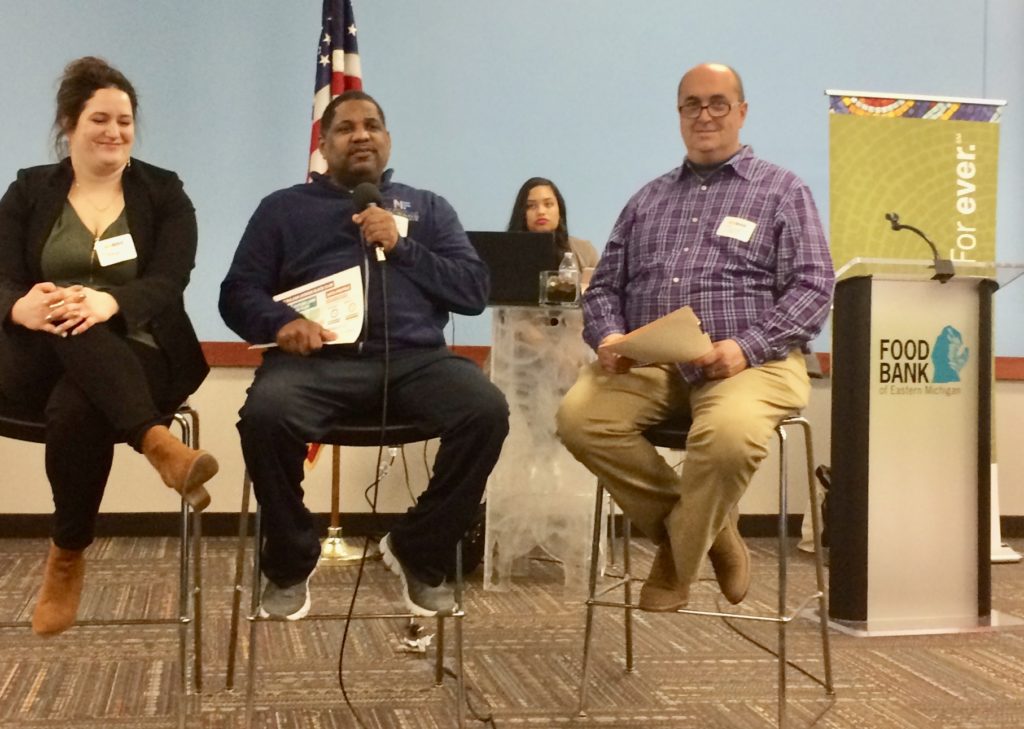
From left, Megan Heysa, Willie Smith and moderator Joe Schipani, vice chair of the CFGF Small Grants Committee. (Photo by Jan Worth-Nelson)
Heysa said after buying her house in 2016, she planted flowers and repainted her own porch. Her neighbors passing by began engaging with her, and ongoing relationships ensued.
She said she realized that if she could build relationships between her neighbors and herself, she could do it with others, developing a wider network. She began taking walks herself around the neighborhood, talking to people and trying to find areas of commonality.
After months of building a foundation of trust, it turned out a common goal was “porch appeal.” So with grant support, she and her neighbors planted flowers and painted porches of Eastside homes. Those beautified porches have naturally evolved into gathering places for neighborhood meetings, facilitating relationships and providing occasions for hearing the voices of those without transportation to meetings elsewhere.
She said there still is a lot of mistrust in the neighborhoods, partly an outgrowth of the Flint water crisis, when at its peak outsiders were knocking on their doors ten or more times a week. It was a response that felt like an invasion to some residents, she said.
Willie Smith, who as president of the West Pulaski Street Block Club has raised close to $45,000, urged participants not to give up if their initial efforts fail.
“There’s always a way around,” he said, relating how after one grant rejection he and his neighbors went back to the drawing board and came up with an alternate plan that they could and did implement.
Echoing Heysa’s remarks, Smith said one challenge has been enticing those who have not been involved to be involved–and keeping them involved by “letting them know that they are valued,” he said.
Acknowledging that almost every good idea requires resources and money, Smith reassured his listeners, “There is a lot of help out there–if you look for it you can find it.”
While Smith credited the City of Flint Planning Department and Heysa praised the Neighborhood Engagement Hub and the University of Michigan – Flint Office of Research for their assistance, both also noted help can come from less official sources as well — sometimes from the the neighbors themselves.
“Everybody has a skill set,” Heysa concluded. “We all fit together like a puzzle pieces. Find somebody with a gift, a painter, somebody good at landscaping– see somebody’s worth for what it is.”
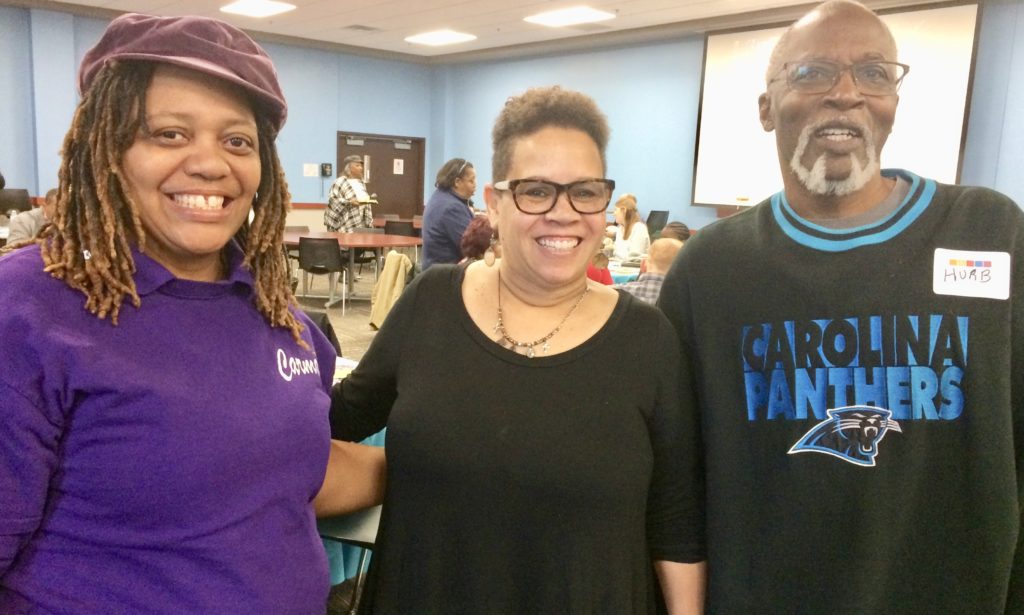
From left, Carma Lewis, president of Flint Neighborhoods United; Lynn Williams,CFGF Community Engagement Officer and Hurb Pitts, Tool Shed Manager at the Neighborhood Engagement Hub (Photo by Jan Worth-Nelson)
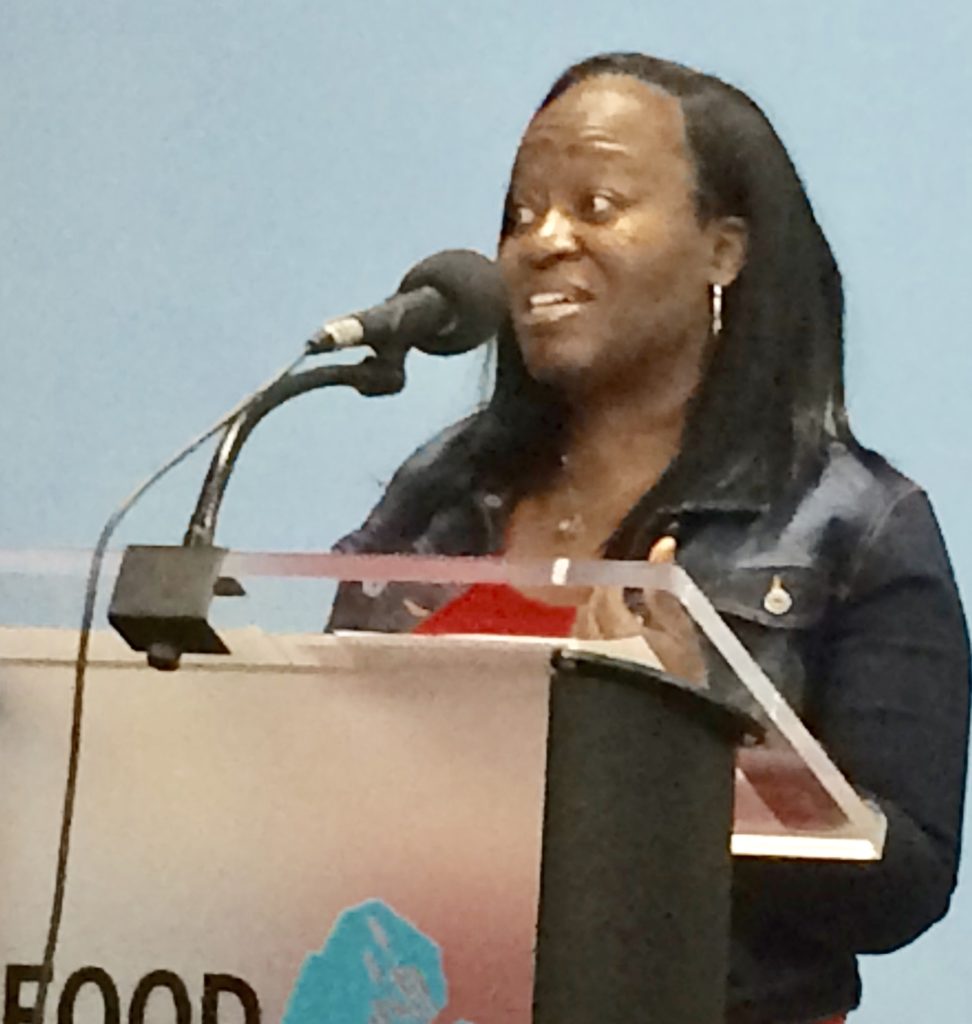
Jameca Patrick-Singleton (Photo by Jan Worth-Nelson)
In opening remarks, Sue Peters, vice president of community impact of the Community Foundation, said the point of the day was to share information “to help you all do what you’re doing in your neighborhoods” and to give groups opportunities to learn from each other.
Tracks of the Flint water crisis were apparent in some of the discussion, where in a break-out session with Jameca Patrick-Singleton, chief recovery officer for the City of Flint, residents said among top priorities for their neighborhoods are completion of the water pipe replacement, assurances that their water is safe, and reduced water bills.
Patrick-Singleton emphasized she understands the water crisis continues to linger, commenting, “We are not recovered until WE feel recovered.”
High stakes for census count
Peters also urged residents to get ready for the 2020 census, for which the CFGF will be a “census hub.”
“We want to make sure they know that Flint is here,” she said, noting that each uncounted person would cost the city $1,800 a year for the next ten years. “That adds up — that impacts things that we use every day: the roads, school lunch, Medicaid and Medicare, early childhood programs. Building trust to remind folks to be counted is really important.”
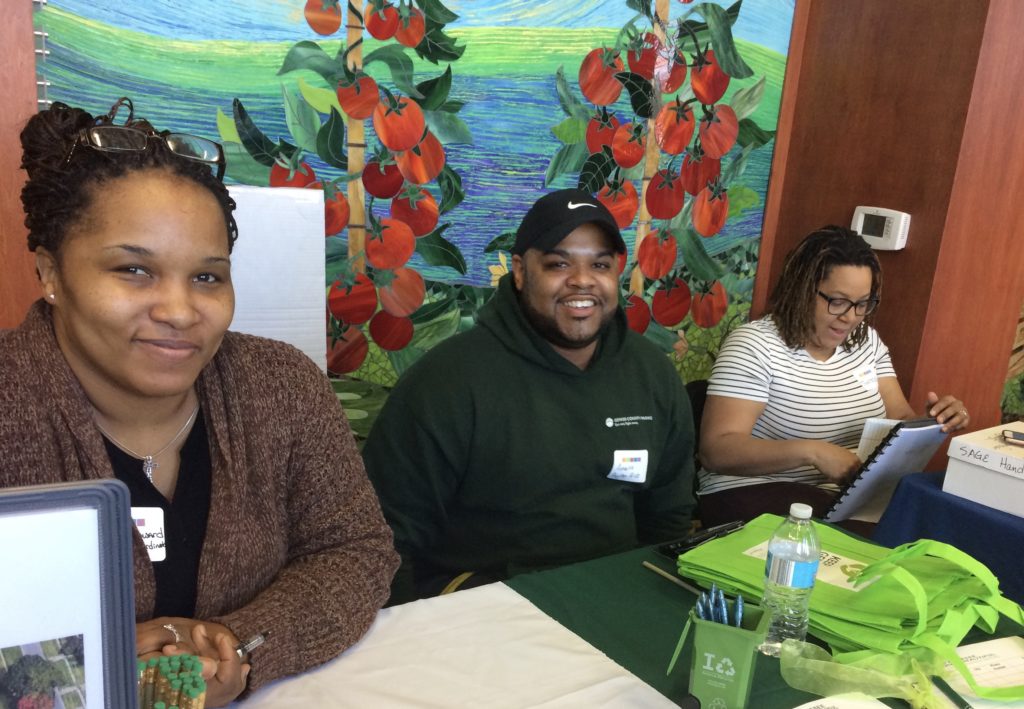
Shareka Howard and Amario Payton-Rice of Keep Genesee County Beautiful and Theresa Roach of the Crim Foundation welcoming participants (Photo by Jan Worth-Nelson)
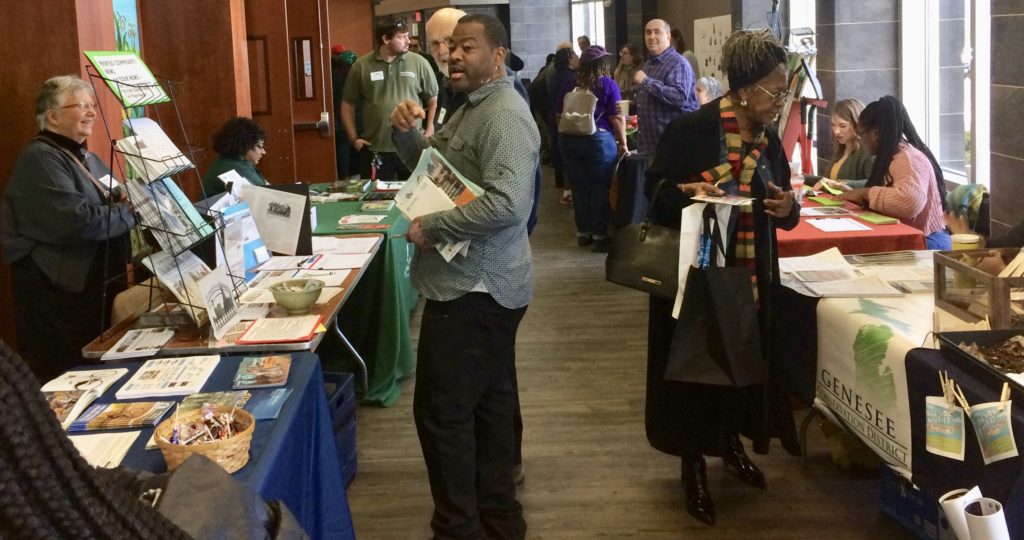
Flint resident Quincy Murphy at the Flint Our Community Our Voices/Community Papers in Print/King Avenue Plus table, with Jane Richardson (Photo by Jan Worth-Nelson)
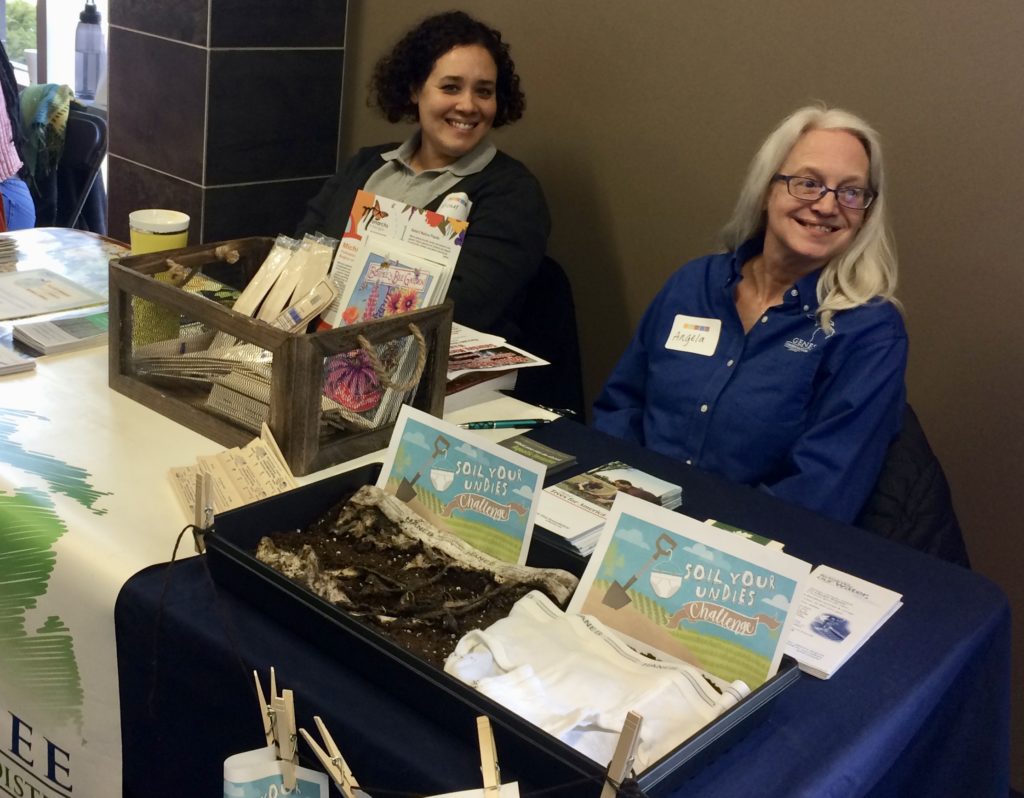
Micah Hutchison and Angela Warren of the Genesee County Conservation District (Photo by Jan Worth-Nelson)
A double row of tables outside the meeting room were staffed by representatives of two dozen organizations, many such as Habitat for Humanity, Keep Genesee Beautiful, Applewood Estate/Ruth Mott Foundation, Communities First, the Flint Public Library, local media outlets, Americorps, the Crim Foundation, and many more.
Spring was in the air: Representatives from the Genesee Conservation District passed out Burpee Seed packets for butterfly gardens and posters depicting “trees for bees.” The Flint Food Hub offered apples.
The Community Foundation awards “Neighborhood Small Grants” to between 40 and 50 community organizations a year, and many of those recipients from the 2018 grant cycle sent representatives or were showcased at the summit.
More information on grants from the CFGF is available at www.cfgf.org or by contacting Lynn Williams, community engagement officer, at 810-767-8304. According to CFGF materials, grants available for 2019 include mini-grants of up to $1,000, next-level mini-grants up to $5,000, and “transformational” grants up to $25,000.
EVM editor Jan Worth-Nelson can be reached at janworth1118@gmail.com.


You must be logged in to post a comment.